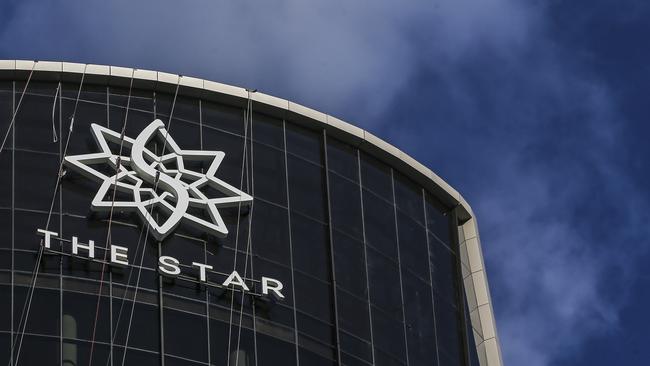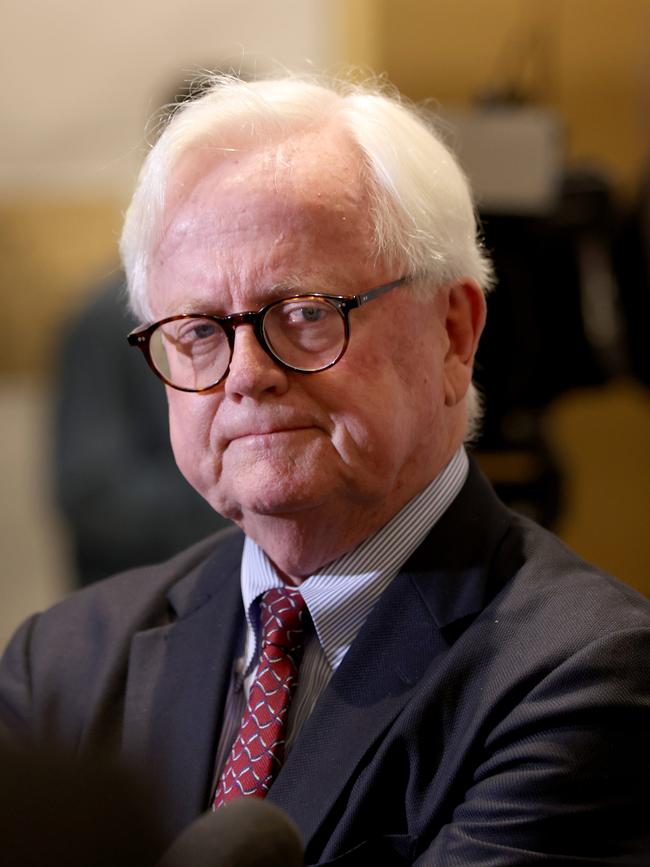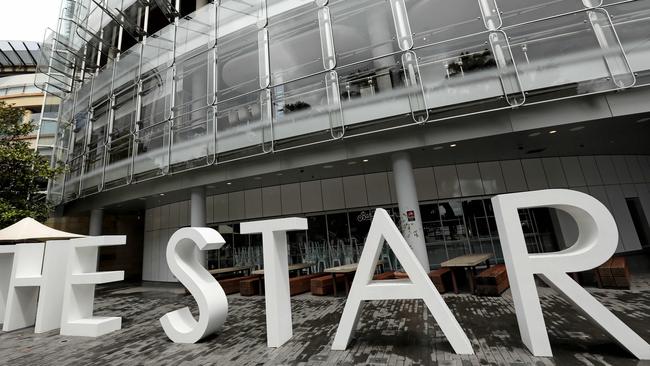NSW casino regulator buries Bell probe into Star Entertainment as doubts raised
Documents submitted to the Bell inquiry raise new questions over just how committed the NSW casino regulator had been in its part around Star’s reform efforts.

It has been two weeks since Adam Bell SC handed his review of Star Entertainment to the NSW casino regulator, and it may not be until early next month that it sees the light of day.
The delay is frustrating dozens whose reputations have been put on the line by the costly exercise that is now in its sixth month. Until they know what it contains there is limited ability to respond or move on with their lives.
When Mr Bell signed off on his first probe into Star in 2022, his three-volume report and recommendations were out within a fortnight.
What we do know, however, is the motivation for the latest Bell probe is on shaky ground.
The powerful NSW Independent Casino Commission and its head Philip Crawford took issue over former Star CEO Robbie Cooke when he challenged the accuracy and findings of a review of the casino’s reform progress.

Mr Cooke had the full backing of Star’s high-powered board when he questioned the regulator’s hand-picked manager Nick Weeks’ October 2023 report. We also know this because The Australian has previously published internal board documents and communications.
And it has emerged from private and public evidence that it was Mr Crawford’s NICC that had demanded the resignation of Cooke and called for a new inquiry into the casino.
A new cache of confidential documents submitted to the Bell inquiry and seen by The Australian raises fresh questions over just how committed the NICC had been to its role in managing Star’s reform efforts. A closing written submission by Star’s former chair David Foster says he had been surprised that NSW’s casino regulator refused to endorse Star’s formal remediation plan last year.
This plan was to be a critical document, giving the casino a regulatory road map to return to a path of suitability.
While Star had worked closely with the special manager Nick Weeks for as much as six months in developing the detailed remediation plan, Mr Foster noticed a change in mood in dealing with the NICC from October last year. This was the same time Mr Weeks wrote his report on the casino.

Mr Foster, several board members, the NICC and Mr Weeks met several times from October to discuss the progress of the casino and try to push the remediation plan.
“It became apparent during these meetings that the NICC had chosen not to note, approve or endorse the remediation plan,” the closing submission of the former chairman says. “This came as a surprise, particularly in circumstances where the board and Mr Weeks had worked through numerous iterations of the plan.”
Mr Foster’s submission said there had been a positive and professional working relationship between Star and Mr Weeks during his time as chairman, and right through the development of the reform plan.
There had been many “constructive conversations regarding what Star needed to do to prioritise its pathway to suitability,” the Foster submission says.
Mr Foster argues it “would be inappropriate for the inquiry” to point blame at any one person as a barrier to Star’s suitability.
Mr Bell handed his report to the Mr Crawford on July 31. The NICC has said in a statement it will consider the contents of the report before it is made public. Any response or regulatory actions by the NICC are likely to follow shortly after the report has been released.
‘In limbo’
As well the individuals it directly impacts, the delayed release of Mr Bell’s latest exercise threatens to leave Star stuck in limbo.
The casino’s full-year results are scheduled for August 26. And the numbers come as Star is feeling the squeeze as consumers pull back spending and inbound tourism remains sluggish.
The uncertainty of the Bell probe makes it even tougher for new Star chief executive Steve McCann to outline a way forward at the results without knowing what punishment the NICC or Mr Crawford plan.
Mr Bell’s remit in his second inquiry was to consider whether Star should be considered suitable to hold a casino licence again, and by all indications and following more management and board upheaval, that’s not likely to come any time soon.
We also know from the recommendations contained in confidential submissions from the inquiry’s lead counsel Casper Conde and seen by The Australian that Star was not ready to be found suitable to regain its licence. No wrongdoing or breaches of the state’s casino act were found by Conde, according to the submission.
The Australian reported last month that Mr Conde had also recommended the indefinite extension of Mr Weeks’ appointment. (Since that report, the NICC quietly extended the term by another six months).

Although Mr Conde’s findings do not form the final view of the inquiry, they are expected to form the foundation for Mr Bell’s recommendations.
With the casino market remaining soft, Star’s board is likely to be weighing up whether the casino needs to undertake another debt refinancing or a capital raising as it faces at least three big payments in the coming year.
The first of these include a possible $300m to $400m penalty on money laundering breaches, as negotiations with Austrac have resumed. Then there’s four separate class actions that have been filed against the casino alleging misleading and deceptive conduct, that even if one gets up, could result in a large payout. So too, there’s another $230m final payment due this coming financial year for the Queens Wharf construction.
Further unknowns include additional fines from the NSW regulator coming out of Mr Bell’s second probe, and funding of a possible ASIC case against former directors if insurance payments fall short. All this makes it more urgent for Star to get some regulatory certainty.




To join the conversation, please log in. Don't have an account? Register
Join the conversation, you are commenting as Logout